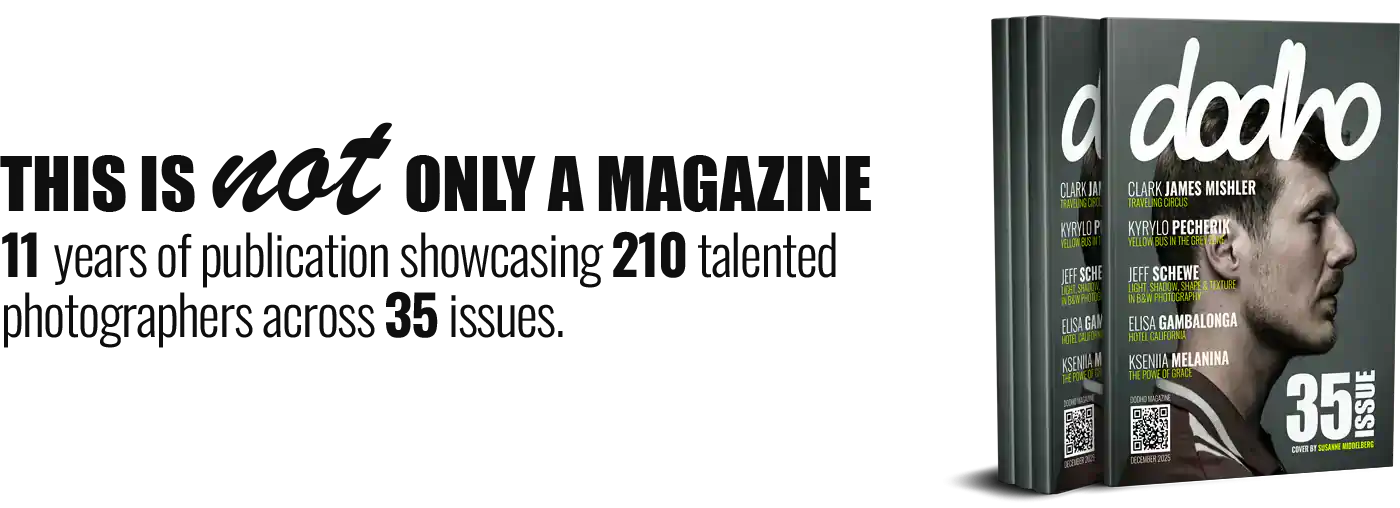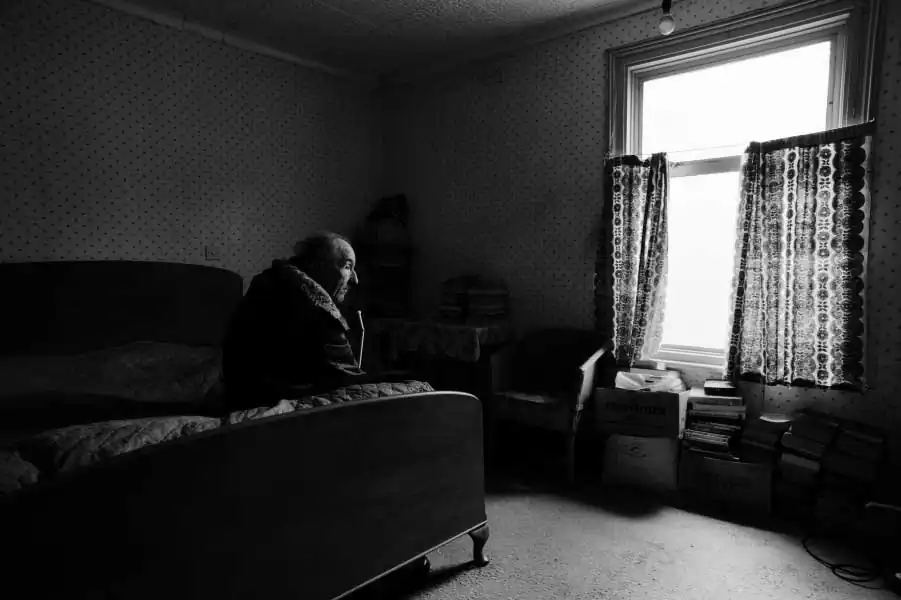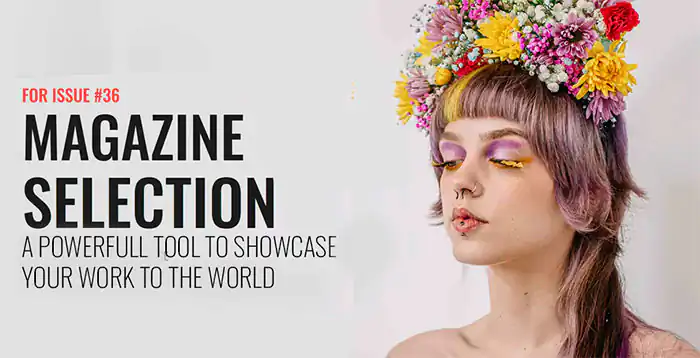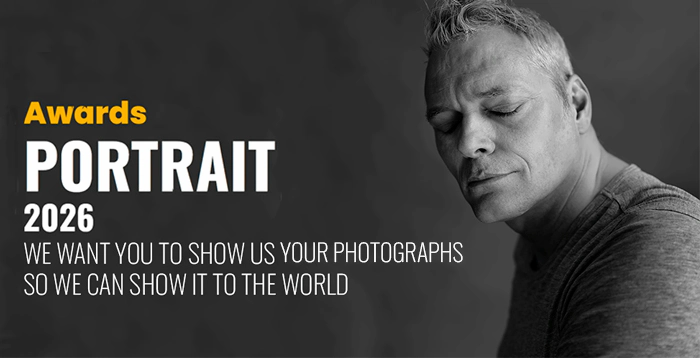Meeting regularly, David and I, in early 2013 began working upon the first instalment of an ongoing series of stories about his life with blindness. The challenging new day to day routines, learning routes into town with his stick or following behind his mother, Eugene.
Together, we focussed upon how he was coping with the isolation, depression, the navigation of the local streets where bodiless voices surrounded him, a new world of unseen whispers, as though falling and falling through a snowstorm of disembodied ghosts, the many new terrors and harsh realities of David’s learning to live blinded.
“The world, well, I knew it was out there but I didn’t feel a part of it, I felt I was no longer a part of the world. You sort of feel like you’re a ghost and you’re like on the far side of the universe and perhaps the world no longer exists or perhaps, like, I’m gone, I’m dead and maybe I’m some kind of spirit and I’m stuck in some parallel purgatory. That’s how it’s felt ever since I’ve been blind”
During the spring and early summer of 2013 and thanks wholly to Mike Hartley who suggested the site, HopeMob was used to fund raise a SARA scanning device for David. The scanner is a machine that enables a blind person to scan the printed word and convert it to audio, letters, newspapers, bills and books.
The fundraising proved to be a success, donations and support coming from all over the world, the money raised in four of the allocated 40 days, social media was used as the singular tool to enable the fundraising, the people that use it responsible for the donations.
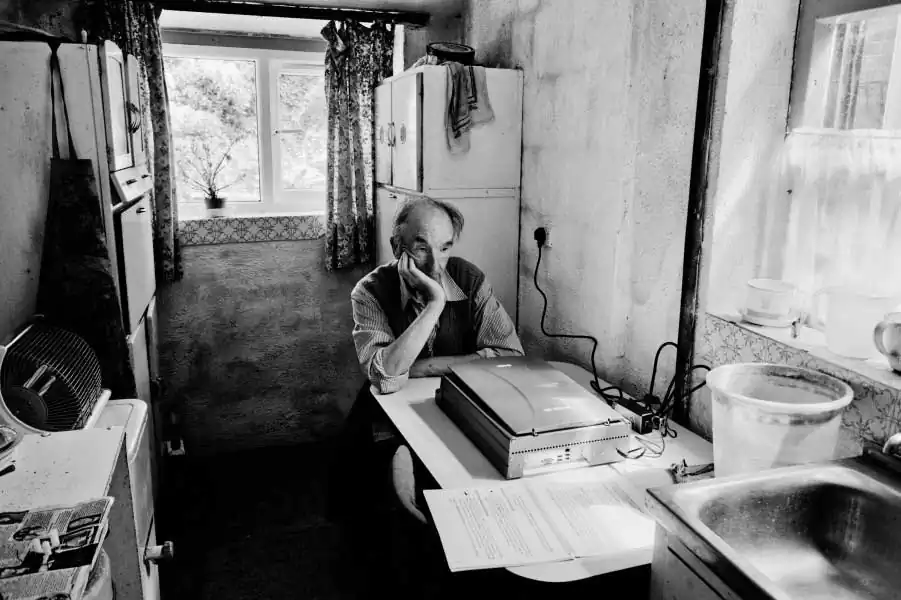
“There’s nothing the same, if I’d been able to see a little after the accident I might have been able to access things but I can’t. I’m so cut off from the world, it’s just like being a ghost floating through the world and the only time you know you’re not a ghost is if you bang into something and it hurts and then you know you’re real as the pain feels real.”
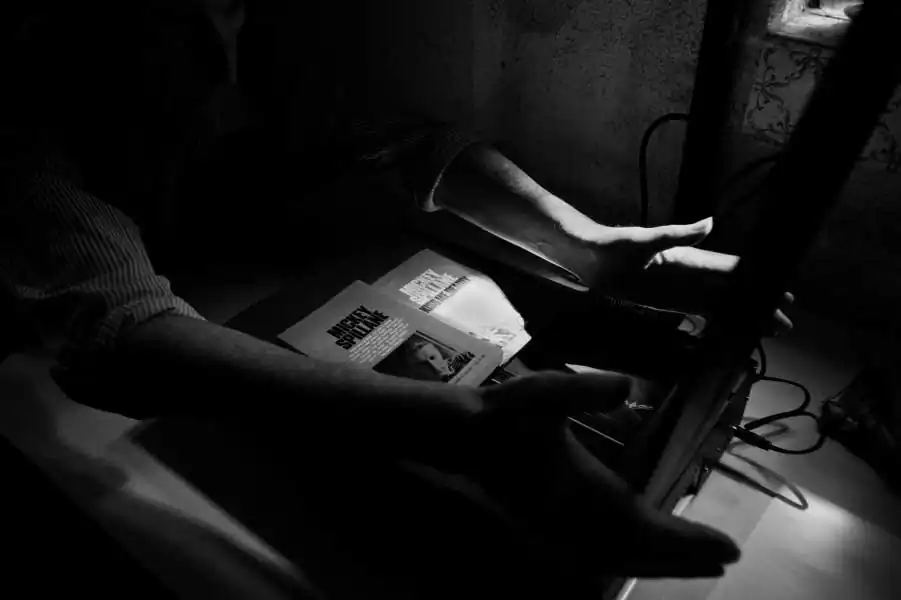
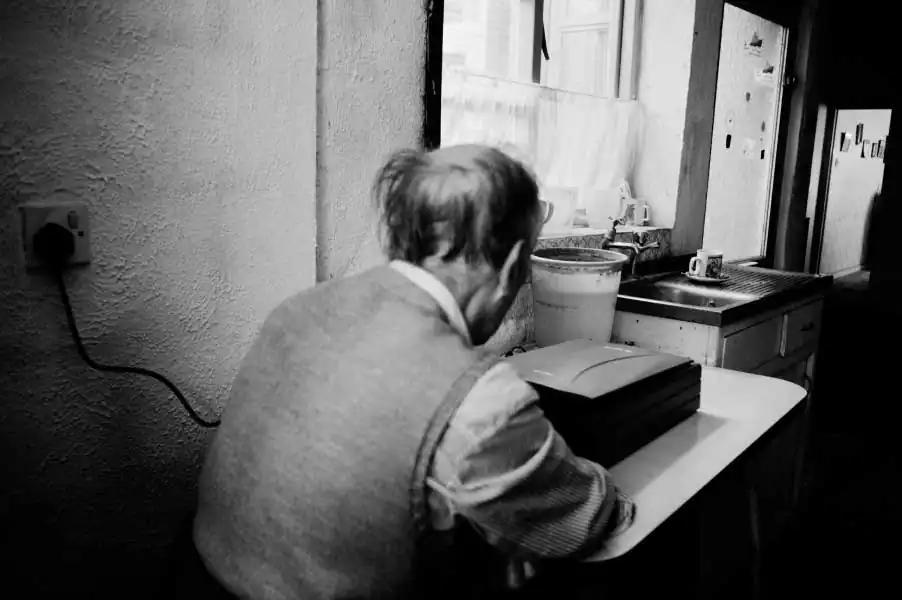
“When you don’t see anything at all, all there is, is black, it’s a terrible situation as you forget what things are, like colours, you begin to forget them. When you dream, though, you can see them, it’s daylight in my dreams but once I wake up, it’s gone.”
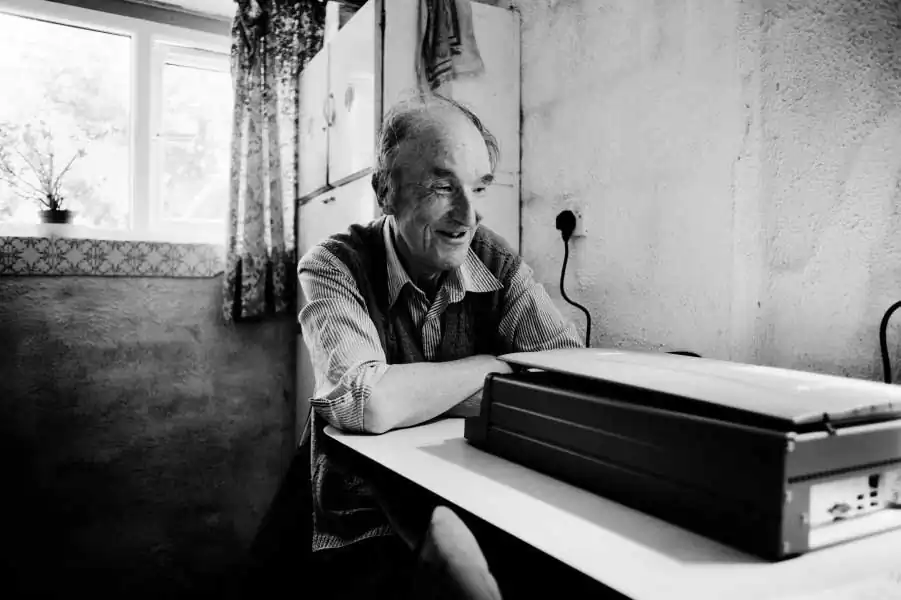
“Having stories read out to me, I can visualise things in my mind and get new input. I can read books I have never read before, I feel like a person again.”
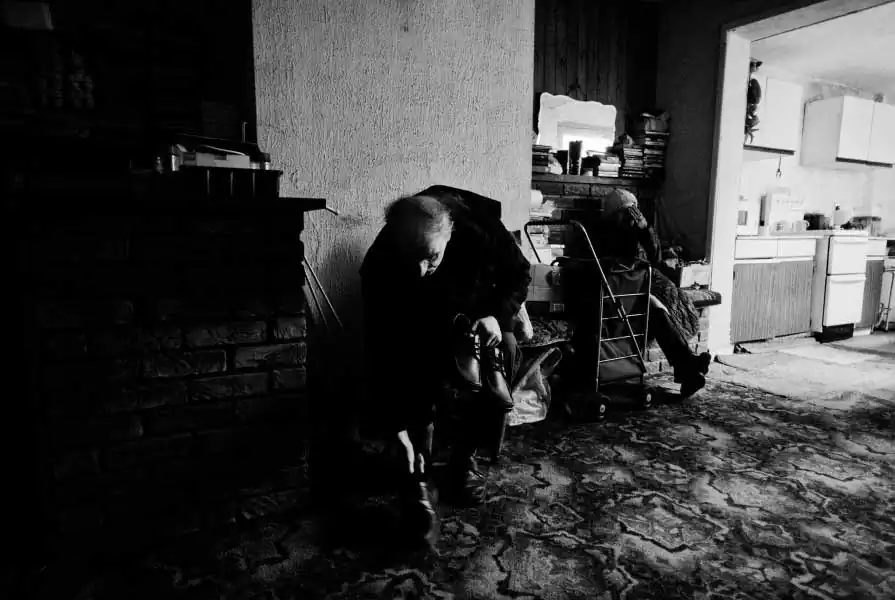
“Mother just kept getting worse during the summertime because she had a lot more pain in her back and in her hip and she couldn’t get about much, when she did she had to lean on her shopping trolley, as far back as January 2012 she’d been like that really. She used to make it into town about once a week and I’d go with her and hold onto the belt of her coat, carry the shopping in my left hand so she did not have to push that weight in her trolley. Then she began to have falls.”
“Her legs got weaker, whether that was because she had to keep laying down because of the pain I don’t know. I guess from this time I really became mother’s carer. During November she had four falls in the course of about a fortnight. She got going again though, she used to just come down in the mornings for about an hour, prepare one or two things for later then she would go back upstairs and get into her bed and cover herself up with coats and clothes to keep warm till about dinnertime.”
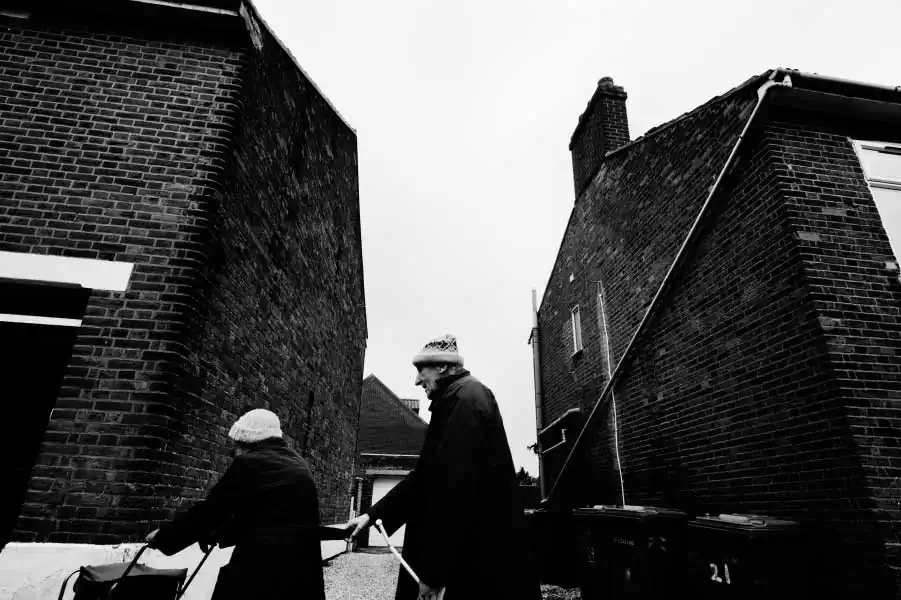
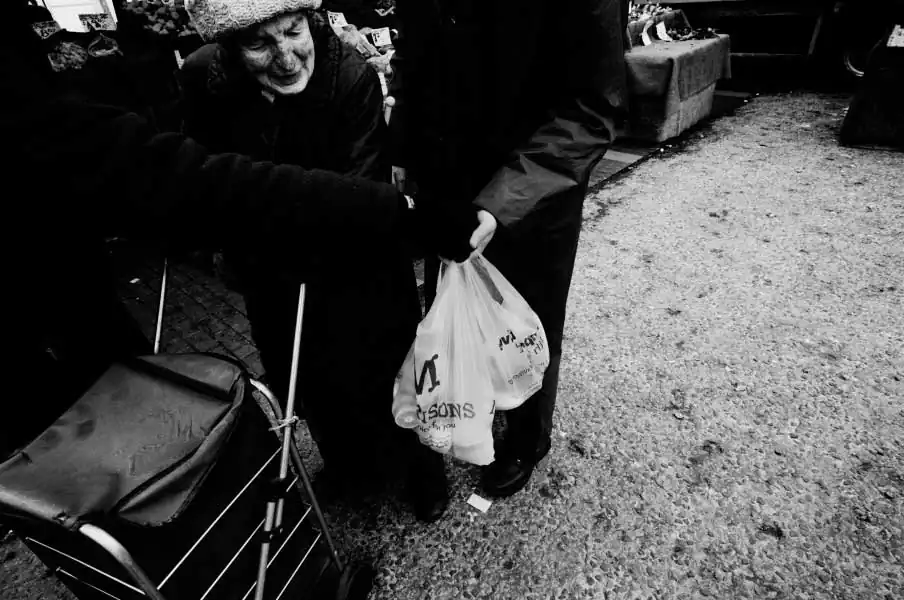
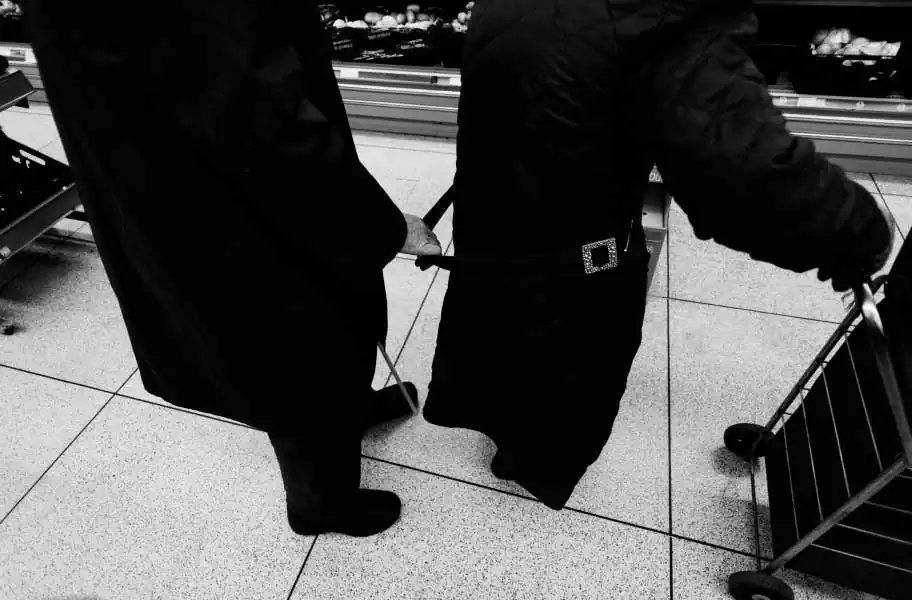
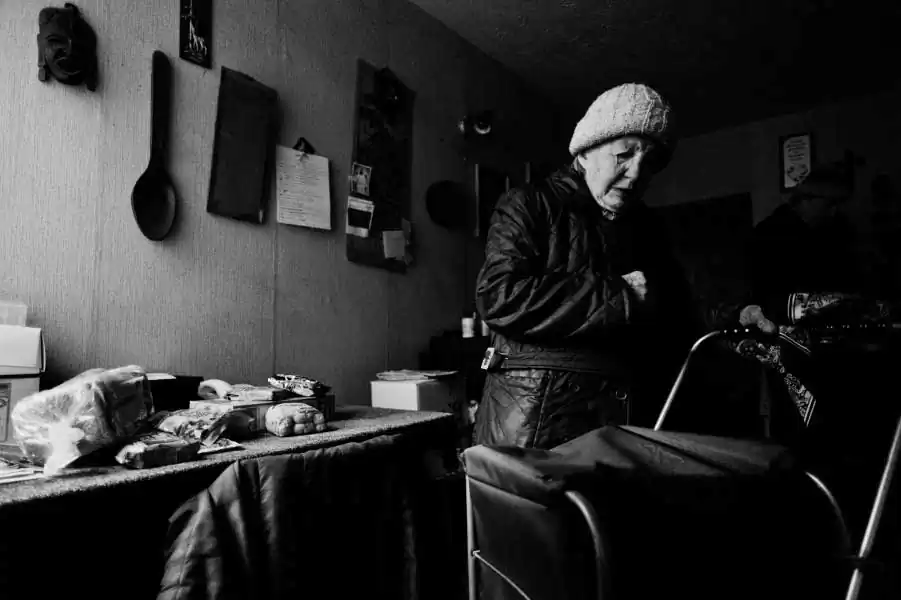
“It was a Friday evening I think and we were in the front room and mother was sitting in this high chair that I’m sitting in now, she would put a blanket over her feet and legs to try and keep warm and she would go up to bed around 8pm because the pain would get too much sat up in a chair, so around 8 she would go up to bed and she got up and went to throw the blanket over the back of the chair to keep it tidy, she swung and the momentum of doing this overbalanced her and she went over backwards and hit her head, I think, on the bookcase, that’s where she told me she’d hit her head.”
“I pulled her up and I was surprised at how light she was as I just held her hand and pulled her straight up, I was so surprised at how light she had got. She went off to bed and she didn’t seem any worse than she had been but I wondered to myself what she would be like the next morning as often you’re worse the next day than you are that moment you actually hurt yourself.”
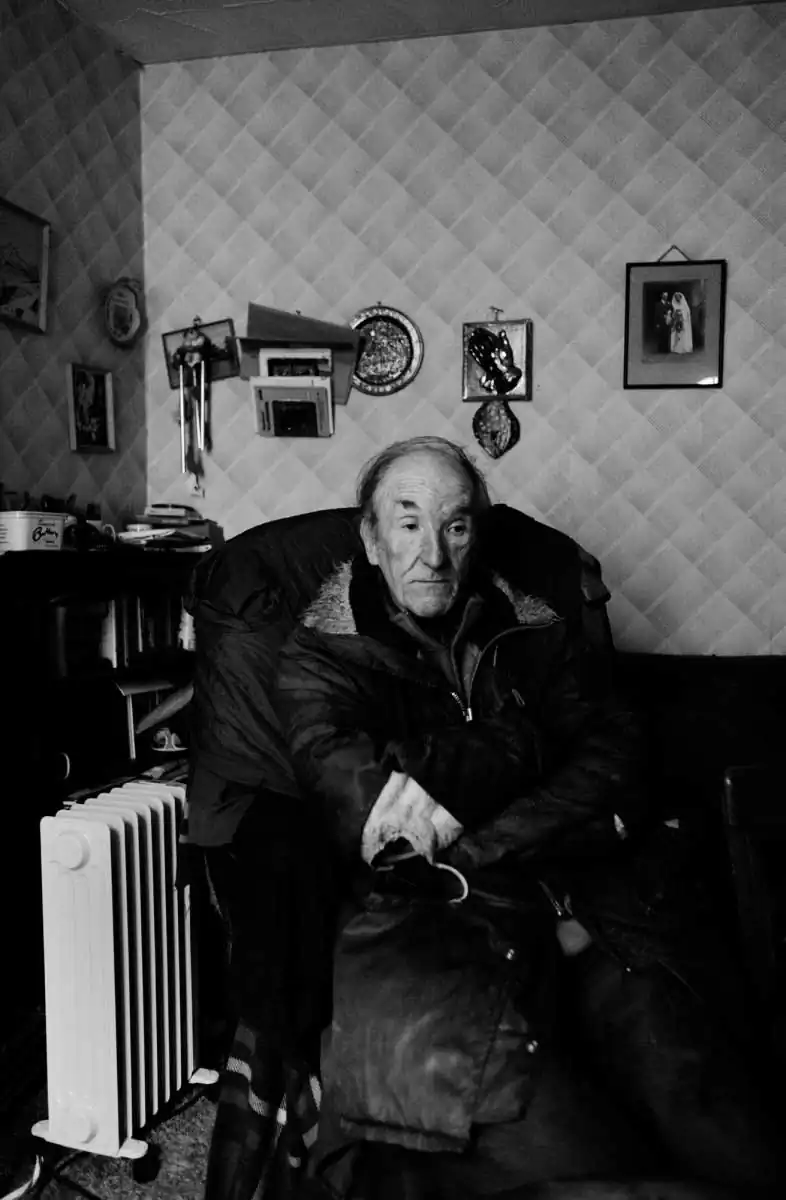
“We got through the weekend and she was a bit stiffer than usual on the Saturday but she was still sort of getting about the house. Then on the Sunday after she had gone up to bed, she’d gone up around half past 8 and this must have been half past 11 I heard this almighty crash and I had a feeling it was her, that she must of had a fall and I thought to myself “What am I going to find?.” so I made my way upstairs and called out and mother said “I’m in the bathroom, I’ve fallen over backwards, I’m laying in the bathroom.”
“I couldn’t get into the bathroom to get her up as she was laying behind the door but she managed somehow to get herself up from the door so I was able to reach through the gap in the doorway and pull her through and up into her bed. After that, she was able to come down in the mornings but she was much worse.”
“About the middle of that week, in the morning after she would usually have gotten up, she was still in bed and from then on she didn’t get up any more. She told me to go up to the doctors surgery and tell the doctor. I managed to get up there but when I arrived the inner doors were locked and fortunately another person that wanted to see the doctor was there and they told me that there was a sign on the door saying the doors were locked until 2pm due to training, so there was no one there and I had to come back home.”
“The next morning I headed up there again at around 9am and made an appointment and the doctor didn’t come out till after he had finished his surgery, so that would have been about one o’clock and after he’d had a look at her said that mother would have to be admitted to hospital but they might not come out for some time because of emergencies. I think they showed up at around a quarter to 6 or 7pm and they took her into the ambulance and up to hospital.”
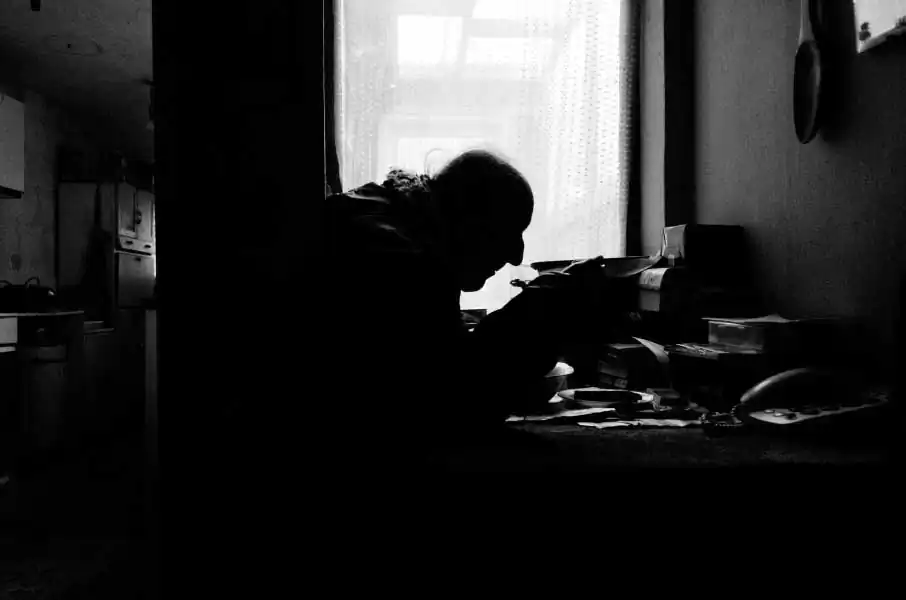
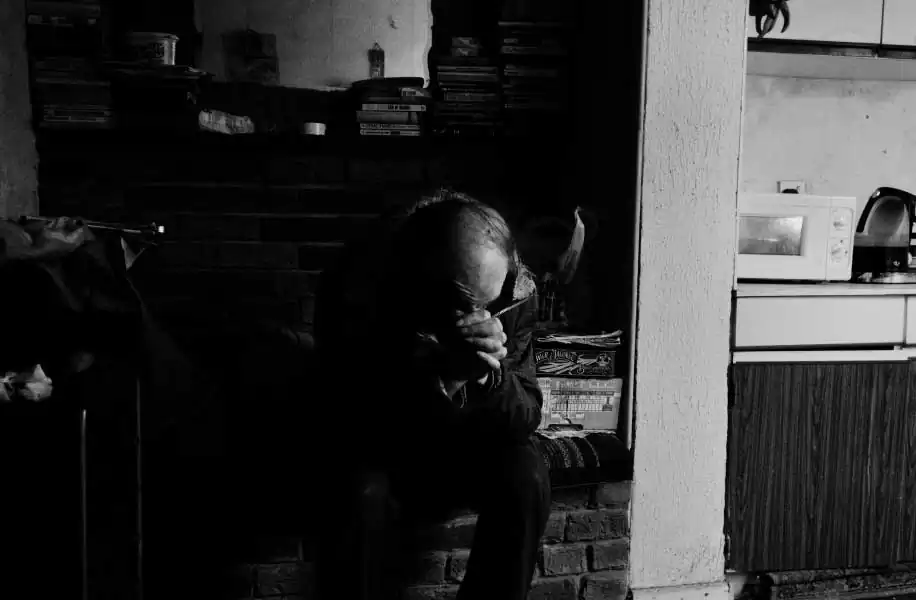
“I managed to get a lift up to visit and mother said “I don’t want to be in this place, I want to come home.” and I said “Yes, I know, you to told me to tell the doctors.” and she said “I didn’t know I’d end up in here!.” and I promised to try and do my best to get her back home. She said “It’s a horrible place here, you should never have done what I told you to do!, you should have defied me and not gone!.” but when I walked to the doctors with my cane I had no idea the doctor would decide she had to go to hospital you see?. I didn’t know what else to do. I asked mother if she had been x-rayed but she told me “No.” so whether she did break anything when she fell god only knows as I don’t and I never did find out.”
“The hospital said that she had got malnourished because she had only been eating small amounts. I’d been going into town with my long walking cane to get food for her for months, ready meals but she began to only eat half in the day and I would warm up the rest and she would have that in the evening. I used to say to her that was not very much, that she was on half rations and that she should eat more.”
“A few days later I managed to speak with mother on the phone and she sounded a little better, more interested in things, asking after me and how I was managing on my own and we talked for a few minutes. That was the last time that we really had a conversation that was a proper conversation. When we said goodnight on the phone she said “Goodbye, my darling.” and I said “Goodbye, mum.” and I said “I love you.” and she said “Yes, I know you do.”
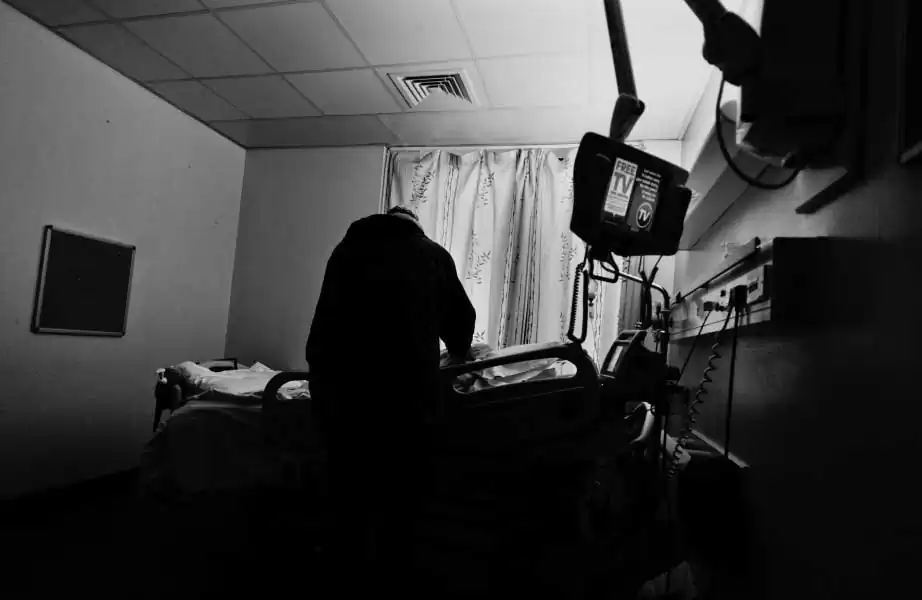
“Then the next day the hospital called again and said that mother had a chest infection and she was not very well at all and the consultant had put her on a drip of antibiotics. The day before she had been picking up and then this came on in a matter of hours. A day later a woman doctor phoned up and said about this chest infection and now also an urinary infection. They kept her on a drip and this all went on for a few more days.”
“We’re going to take her off the drip and not do anything more for her.”, the consultant decided this. The woman on the phone asked me how I felt about this and I said “Well, how do you think I feel about it?, not very good, do I!.” I wanted them to put her on a drip and give her a few more days but they had decided not to after running all these tests but I just didn’t know what was going on.”
“I said to the people on the telephone that were calling from the hospital how hard all this was because I couldn’t see. I felt helpless as I was stuck at home and I wanted to visit but I couldn’t get up there to visit, I didn’t know what buses to take or where to walk, these are all routes I’d never learned. I said all this to them and they told me it wouldn’t make any difference to things even if I could get up there. I told them to tell the consultant how I felt, that I would like them to give her a drip again. I’d ring them up everyday and ask how she was and they would tell me no change and I’d feel like such a heel as I couldn’t get up there.”
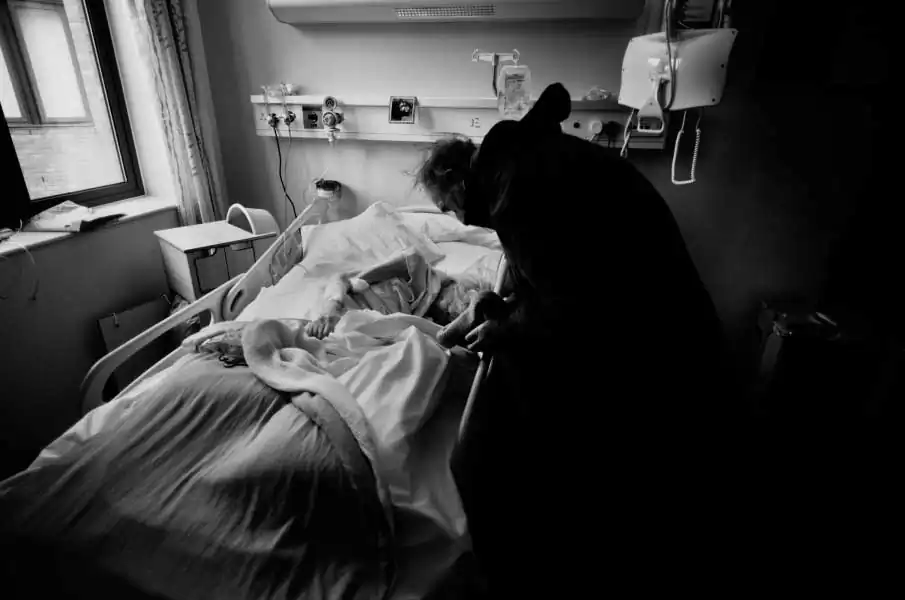
“Anyway, I got Jim to take me up, we went up together on the bus, he came and took me up there to the hospital and I sort of tried to talk with mother, well, you couldn’t really properly talk with her as she was delirious as now she had this infection in her kidneys and once your kidneys are not functioning right you get all disorientated but she must have known something as my hands had got cold outside and she suddenly said “That’s one thing… your hands are cold.” so she knew that and I said “Yes, it is cold mum.” so she must have known that. After a few minutes she spoke again and said my name “David.” so she must have know that it was me but after that she didn’t say anything else.”
“We went up again and she was much worse, unresponsive in a very deep sleep, semi conscious but I spoke to her, I told her what a wonderful mother she was. I’m pretty sure she could hear me. That was the last time I ever saw her because she got through that night but died the next night. I was at home sat up and the telephone rang and I thought to myself “Oh, god almighty… I bet I know what this is.”
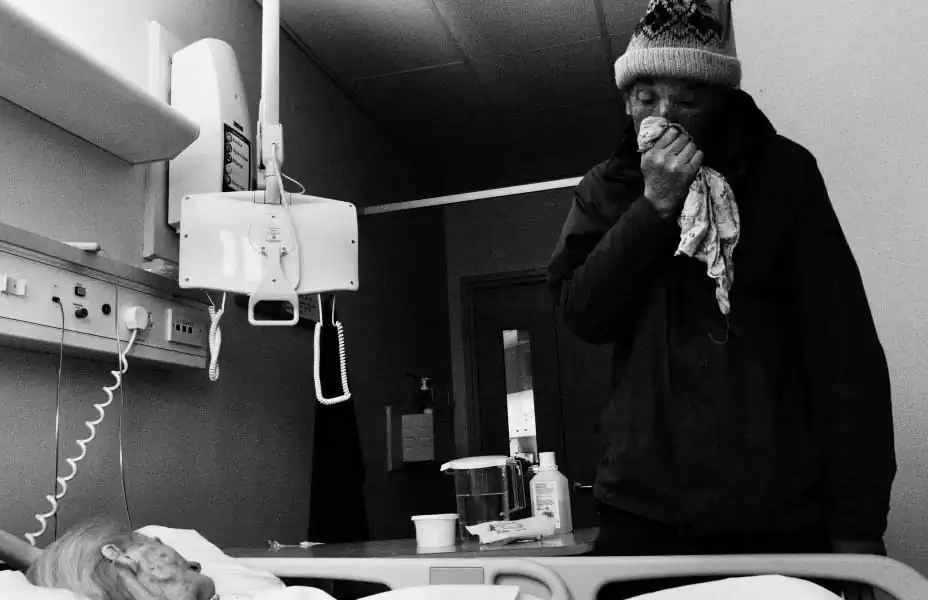
“I’d been hoping, you see, for some sort of a miracle but it was the hospital calling and they left a message on the answer phone saying that they had some bad news and that mother had passed away, the nurses had gone in to check on her and noticed that her breathing had got very shallow so they stayed there with her and held her hand, so at least she was not all alone when she did die.”
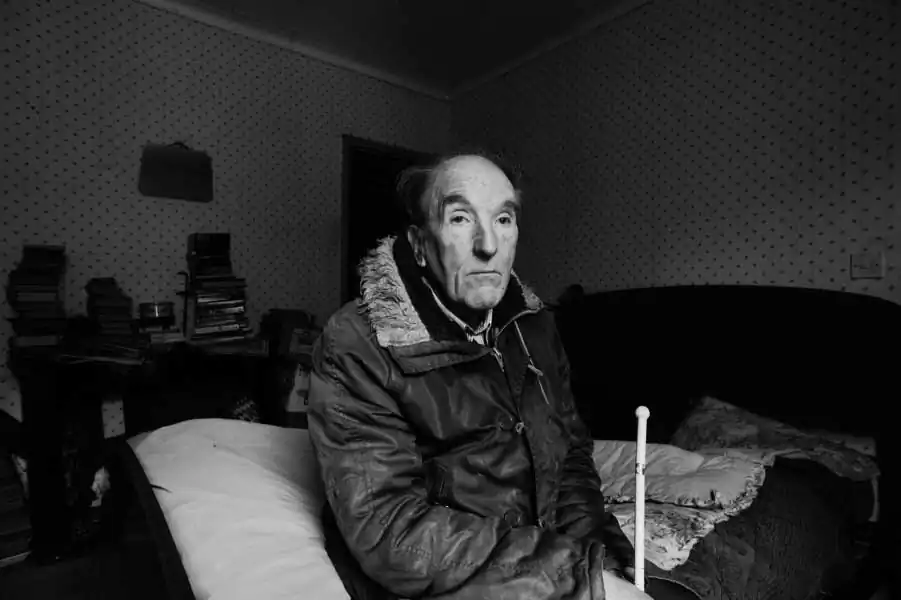
“All this has been made worse in that, when you lose your sight you already down about that and then you have to deal with everything, losing someone… it makes it so dark, no daylight, so nothing brightens up, it’s always dark. It’s dreadful really. It’s as though I am in a box, a prison cell, all the time and I can’t escape. I lost my sight, I never lost my capacity to feel or to reason so I feel all these emotions just as I always would have before the accident, just now… I feel like I’m coping very badly as the blindness, the depression it never changes. I have been using the SARA a little more now though, it’s like a parole really, a few moments out of my prison cell. Mother used to like me having it on whilst I listened to my books so, now she’s gone I kind of feel it’s not too disrespectful to have it on as she used to like it reading the books too.”
[Official Website]
